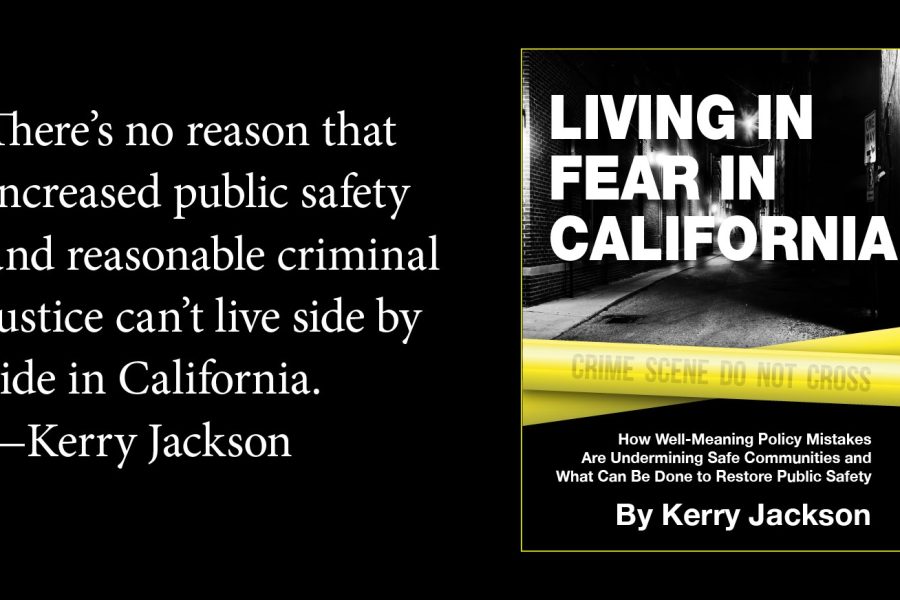Anecdotes of rising incidents of crime across California are too numerous to mention these days.
While California had a regimen of tough-on-crime public safety laws on the books as late as a decade ago, the past decade has ushered in a dramatic shift in criminal justice policy that led to voter approval of Prop. 47 and Prop. 57.
Coupled with the election of “woke” district attorneys like Chesa Boudin and George Gascón, many observers are arguing that a perfect storm that has led to the recent crime wave across the state.
Yet despite headline-grabbing brazen retail thefts, freight trains hijacked by thieves looking to raid people’s expected online shopping deliveries, and shocking incidents of violent crime, crime has actually ranked very low in recent years in the list of the top concerns of Californians in public opinion polls. Until now.
Two recent public opinion polls document that Californians are growing increasingly frustrated with rising crime.
In the most recent Public Policy Institute of California statewide survey, crime has risen to the top 4 of issues that voters said Governor Newsom and lawmakers should focus on in 2022.
PPIC Associate Survey Director and Research Fellow Dean Bonner writes that, “7 percent of Californians named crime, drugs, and gangs as the top issue for Governor Newsom and the legislature . . . an increase from 1% in 2021 and 2% in 2020.”
More telling, Bonner notes that, “65% of Californians view violence and street crime in their local community as a problem – including a record-high 34% who say it is a big problem.” This is a 10 percent jump since just February 2020.
Separately, a new UC Berkeley Institute of Governmental Studies poll released this week shows “a 51% majority of voters also downrates the Governor’s performance on crime and public safety issues, up 16 percentage points from 2020.”
The survey also found that, just two years after rejecting Prop. 20 with nearly 62 percent of Californians voting no, voters support by a two-to-one margin reforming Prop. 47, which lowered penalties for several crimes from felonies to misdemeanors, including the shoplifting of items valued at under $950.
On this week’s episode of PRI’s Next Round podcast, I asked our new senior fellow in urban studies Steve Smith whether the new poll results gave him hope that Californians are finally beginning to wake up on the public policy changes needed to restore safe streets and communities.“
Now what people are seeing is that stability has gone away, and that crime is increasing, particularly homicides which is really disturbing because it is a steep spike upwards – 30 percent in some jurisdictions. That scares people,” he said.
Smith also argues that people are coming to see rising incidents of homelessness and retail crimes in their communities are reducing quality of life.
“People see tent cities, they see open air drug use, they see litter, they see defecation, and those quality of life issues influence voters in a pretty profound way – and I think we are headed in that direction,” he concluded.
The stars seem to be aligning for a public safety pendulum shift.
According to the Los Angeles Times, “legislators in both political parties, however, have already introduced a handful of bills to modify Proposition 47, including one that would lower the value of goods stolen back down to $400 to qualify a theft as a felony.” There’s also a proposed statewide ballot measure in the works.
We’ll see if what Smith terms as the disappearance of stability in people’s communities will finally lead to the enactment of long-overdue reforms to cure the worst loopholes in Props. 47 and 57. Based on the recent poll results, Californians will be watching closely.
Tim Anaya is the Pacific Research Institute’s senior director of communications and the Sacramento office.


